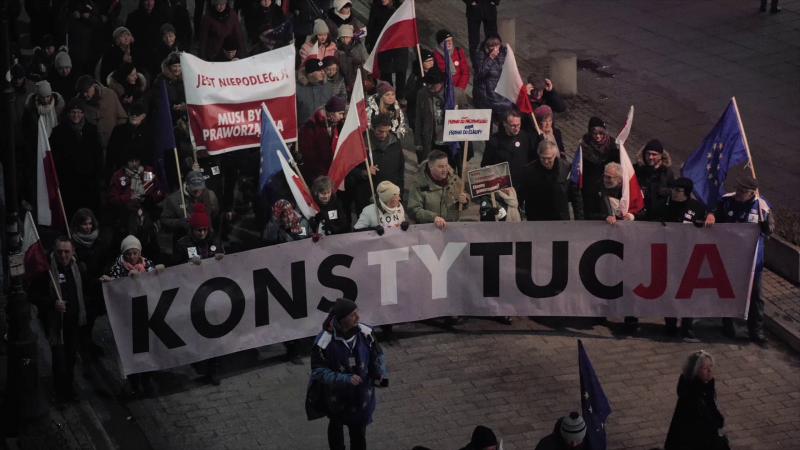New Polish films in the program of the 20th WATCH DOCS IFF
The 20th edition of WATCH DOCS. Human Rights in Film IFF will start on December 4. The program, apart from the main competition, documentaries about ecology and corporate propaganda, will also feature the latest excellent Polish titles, presented in the "New Polish Films" section.
"7th of August", dir. Michał Bolland
The wave crested on August 7, when the community said enough, demonstrating on the streets of Warsaw in defense of an activist Margot. On that day, the power of rainbow solidarity clashed with brutal police aggression, resulting in the orchestrated arrests of 48 participants of the protest. These included the protagonists of Michał Bolland's shocking film - Kajetan, Kamila, Krem as well as Julia and her partner.
"Going for Gold", dir. Ksawery Szczepanik
The film is not only an emotional testimonial of athletic competition at the highest level, but also a portrait of Poland and the changes it goes through. Szczepanik uses archival recordings with great sensitivity to convey the atmosphere of those times, showing viewers behind-the-scenes stories about envious sports managers, sponsorship contracts worth thousands of dollars, and the role of natural medicine in Kozakiewicz's career and his victory in Moscow.
"Stolen Fish", dir. Gosia Juszczak
The construction of a Chinese fish processing plant completely changes the situation for the residents of Gunjur, on the Gambian coast. Fish was once a staple of local cuisine and the economy. These days, the fish are caught commercially by giant trawlers and turned into meal on-site, which is then sent to China and Europe as feed for livestock. Meanwhile, unemployed Gambian fishermen are joining the ranks of migrants seeking a better life in Europe.
"A Thousand Robes", dir. Kacper Lisowski
In Warsaw on January 11, 2020, judges, prosecutors and lawyers from 26 European countries demonstrated their solidarity with Polish judges fighting to maintain what remains of judicial independence. In the film we observe as they march in togas, shoulder to shoulder with Polish colleagues, surrounded by thousands of applauding Varsovians.
Heda with her five children fled Chechnya's wars and her sadist husband for Poland. In a refugee center she met Marina, who taught her a new word - volunteer. From then on, they worked together, helping people without a home and those lonely in retirement homes and those in prisons. When Heda became seriously ill, Marina invented this film for her. It kept Heda alive, offering a way to share herself with others once again and in one more role.
In his film, Maksim Shved follows in the footsteps of the Minsk-based artist Zahar Kudin, one of Belarus’s most interesting young painters. Walking around the city with a large white canvas, the painter attracts the attention of passersby, who gladly engage in discussions about art and life, as well as that of the ubiquitous undercover police trying to sniff out “political provocation.” Pure Art is also a film about Minsk: its monumental architecture, broad promenades, and huge apartment blocks.
"I Need The Handshakes", dir. Andrei Kutsila
Time seems to have come to a standstill in this tiny Belarusian village. In a house off the beaten track, a feeble old woman takes care of her daughter—who has been paralyzed since birth—all on her own. Andrei Kutsila, one of Belarus’s most talented documentary filmmakers, beautifully tells a story of boundless love, loneliness, and the pain of existence that both protagonists have to face.
A subtle story of difficult family relations. Marcin was taken away from his alcoholic parents when he was twelve and he spent the rest of his childhood in a children's home. After he comes of age, he comes back to his family home and tries to get on with his life: finds a job, pursues his passions, tries to re-establish contact with his father.
